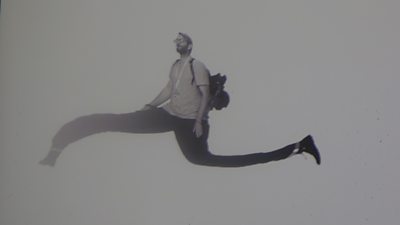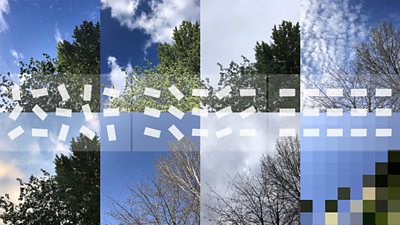Updates from the last two weeks of work in the Internet Research & Futures Services team of ±«Óãtv R&D

Tom and Henry, after testing version 1 with some students, have been planning the next phase of "Looking for Nigel" - an outdoor audio augmented-reality (AR) story experience. We're also aiming to refine the "Not a Robot" AR experience, developed by our interns. Rosie has started her PhD placement and Rishi's time with us concluded with a talk on his audio archive explorer.
Machine learning and algorithms
The team have reached three milestones in their planned work. First, a new neural net architecture for Kaldi that has made it two times faster, three times more memory efficient and more accurate than our competitors. The team deservedly treated themselves with a cake. Second milestone was a minimum-viable product of an evaluation dashboard and third was porting the package to Python.Alex has been working on the synthetic voice work described above - he's tidied up the git repository and documented the work. And Ollie, who's just finished his placement with us, is off on a mini-placement with the News team in Delhi.Our interns, Saba and Taner have been exploring multimodal recommendations (combining different techniques to make better recommendations), including extracting text features from programme subtitles. The team is also planning a hack week on recommendations and micro-genres. Chris has created a Welsh version of our Starfruit text tagging system, but it's lacking training data, so he's investigating that problem. Importantly, if solved, we could then tackle other minority languages.Alicia and Kristine have been working on playlists - using machine-learning to extract features that might make musical sense, like loudness, dissonance, tempo or key. They're now building a demo of this to show what they've done.
Elsewhere
David and Holly are designing cultural probes - activities and questions that people can respond to - for a diary study with 18-25 year-olds on memories. One of the postcards they've designed for this is shown at the top of this post. This sprint we were also supposed to be working on fact-checking, but the timing went a bit off. So Libby has been contacting ±«Óãtv journalists and we're interviewing them next week about what they might need from a fact-checking tool.
Lastly this week, at our team meeting Henry reflected on his visit to , a festival of art, culture, technology and society in Linz, Austria. It was much bigger than he expected - "4 floors of art, with a giant art bunker underneath". Its theme was "the midlife crisis of the digital revolution". He reported that there were some good AR installations, lots of wibbly-wobbly GAN videos, swarming robots and immersive sound. Overall it was a good spread of technology R&D and art.

Recommended reading
, but you have to learn SQL to solve it is a great essay on tools for thinking, and a new mnemonic format for learning.
-

Internet Research and Future Services section
The Internet Research and Future Services section is an interdisciplinary team of researchers, technologists, designers, and data scientists who carry out original research to solve problems for the ±«Óãtv. Our work focuses on the intersection of audience needs and public service values, with digital media and machine learning. We develop research insights, prototypes and systems using experimental approaches and emerging technologies.